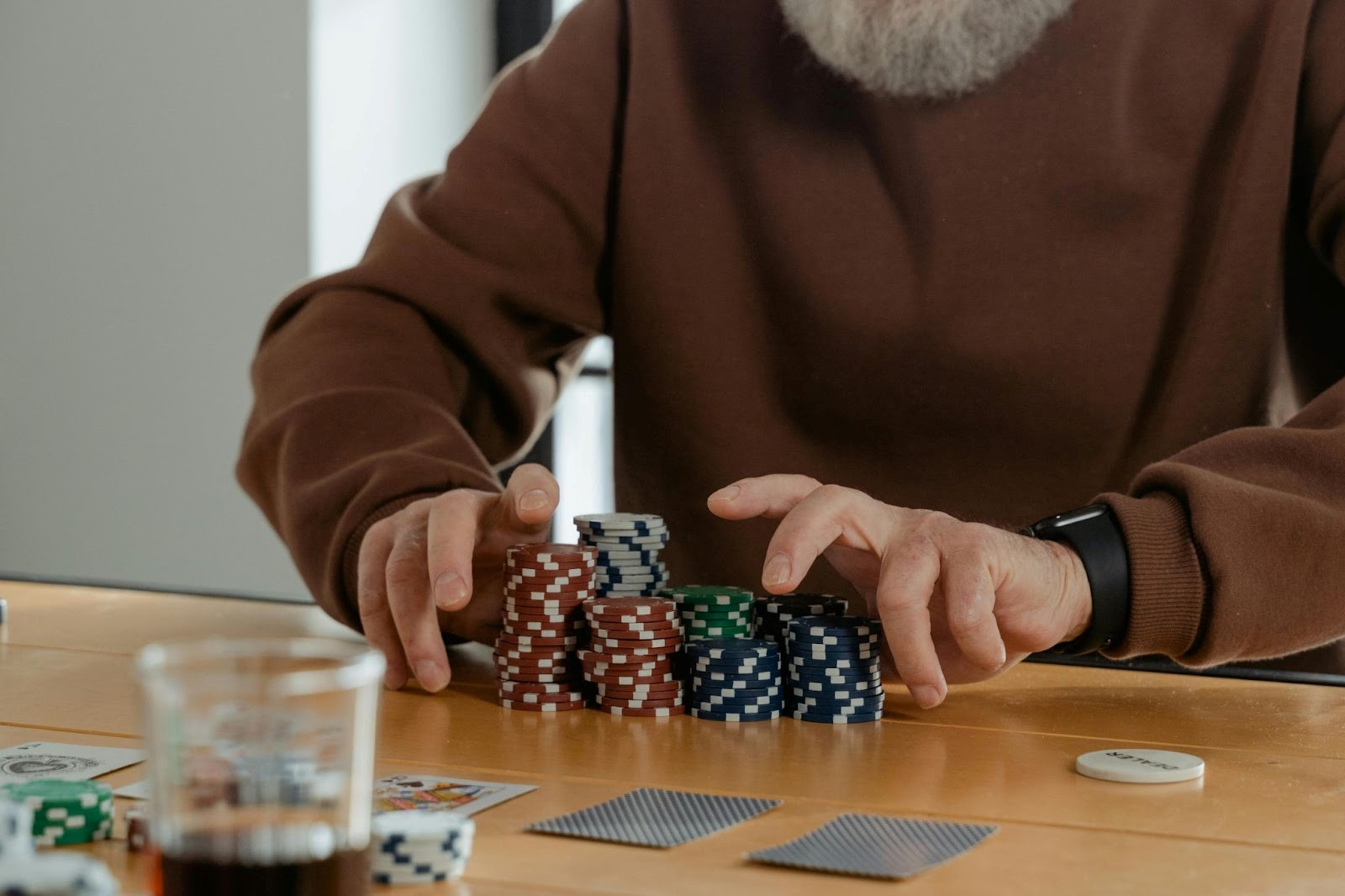Why Some Players Sabotage Themselves and How To Prevent It
Self-sabotage can also creep into poker as it does into life, holding people back without them even realizing it. Many fall into patterns that limit their potential—poor bankroll management, emotional decisions, or an unwillingness to adapt. Outside the game, it’s procrastination, negative self-talk, or settling for less than they deserve. Understanding why this happens is the first step to breaking free of such self-destructive habits.
Settling for the First Option Instead of Exploring Better Choices
One major way people self-sabotage is by grabbing the first option in front of them instead of seeking something better. This happens everywhere—from shopping to gambling. Online gamblers can be guilty of this just from the way they choose their platforms.
For example, local sites might be a default pick because they are readily available. Meanwhile, many casinos not on GamStop may actually offer better value and provide perks like bigger welcome bonuses, larger game libraries, and better loyalty programs.
Sticking to what's familiar can mean missing out on better opportunities simply because stepping outside the comfort zone feels inconvenient. It’s like ordering the same meal every time at a restaurant while ignoring an entire menu of better options. The best rewards often come from exploring beyond the obvious.
Emotional Play and Impulsive Decisions
Letting emotions take control at the poker table leads to reckless bets, bad calls, and avoidable losses. A single tilt session can wipe out an entire bankroll, all because a player lets frustration cloud their judgment. It’s the same in life—people make impulsive decisions in relationships, jobs, and finances, often regretting them later.
Recognizing emotional triggers and learning to separate feelings from logic is key to making smarter choices. The best players and most successful individuals know when to take a step back, breathe, and reassess before making a move.
Negative Self-Talk is a Silent Killer
Doubt yourself, and you’ll lose before you even start. Players who constantly second-guess themselves fold winning hands, misread opponents, or play too cautiously. Outside of poker, this same mindset keeps people from taking risks that could lead to greater rewards.
Rewriting that inner dialogue and reinforcing confidence is essential for winning—both in poker and in life. The mind is a powerful tool, but if it’s programmed for failure, it becomes an enemy instead of an asset. Shifting from “I can’t” to “I will” can change everything.
Stubbornness Will Cost You
The best poker players adjust their strategies based on opponents and game conditions like hand rankings. Those who refuse to adapt get crushed. Some players refuse to shift their style even when they keep losing, convinced that their way will eventually work. The same applies to life—sticking to outdated methods, resisting change, or refusing to learn new skills leads to stagnation.
Adaptability is the difference between staying in the game and getting left behind. Whether it’s changing up a strategy or learning a new approach in life, those who evolve stay ahead of the pack.
Poor Bankroll and Financial Management
Chasing losses, ignoring betting limits, and reckless spending are classic ways poker players destroy themselves. It’s a slippery slope—one bad decision leading to another until there’s nothing left. Outside the game, bad financial decisions—overspending, failing to save, or making impulsive purchases—lead to the same downfall.
Discipline, smart money management, and setting limits prevent disaster in both poker and life. The smartest players treat their bankroll like an investment, protecting it with careful decisions instead of reckless gambles. In life, financial discipline is just as crucial for long-term success.
Fear of Success Can Hold You Back
Some players sabotage themselves because, deep down, they fear success. Winning means responsibility, expectations, and sometimes, stepping into unfamiliar territory. This fear can cause people to make careless mistakes or quit while a lack of fear is usually a defining trait of the most successful players.
In life, the same fear keeps people from chasing their dreams, applying for that better job, or pushing themselves to the next level. Recognizing this hidden fear and confronting it head-on is essential for breaking through personal barriers.
Breaking the Cycle of Self-Sabotage
The first step to stopping self-sabotage is recognizing it. In poker, tracking hands, reviewing gameplay, and seeking advice can highlight bad habits. In life, reflecting on decision-making patterns reveals where self-sabotage happens most. Awareness is half the battle—once a person sees where they’re going wrong, they can start making changes.
Setting clear goals is another game-changer. In poker, players who establish bankroll limits and structured strategies thrive. In life, having concrete goals keeps people focused and helps them push past self-doubt. Small wins build momentum, creating a path toward bigger successes. The more disciplined a person is, the easier it becomes to avoid self-sabotaging behaviors.
Emotional control is key. Whether it’s at the poker table or in daily life, staying calm under pressure leads to better choices. Mindfulness, deep breathing, or simply stepping back before making a decision can help prevent knee-jerk mistakes. A single moment of patience can prevent a lifetime of regret.
Finally, surrounding yourself with the right influences makes a difference—poker players who engage with skilled opponents, join study groups, and watch professionals improve faster. In life, being around ambitious, goal-driven people helps break negative patterns and encourages growth.

